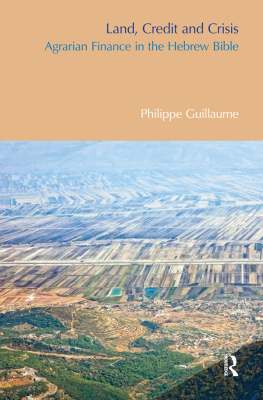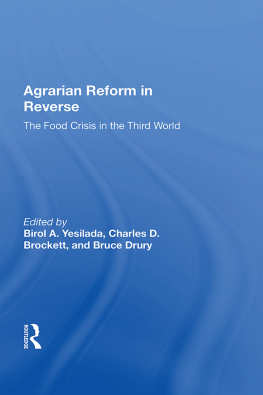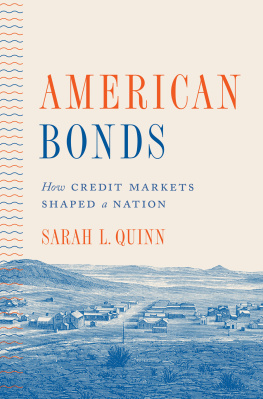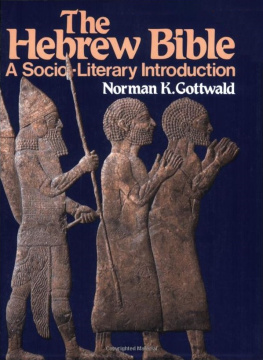Guillaume - Land, Credit and Crisis Agrarian Finance in the Hebrew Bible
Here you can read online Guillaume - Land, Credit and Crisis Agrarian Finance in the Hebrew Bible full text of the book (entire story) in english for free. Download pdf and epub, get meaning, cover and reviews about this ebook. City: Durham, year: 2016, publisher: Taylor and Francis, genre: Romance novel. Description of the work, (preface) as well as reviews are available. Best literature library LitArk.com created for fans of good reading and offers a wide selection of genres:
Romance novel
Science fiction
Adventure
Detective
Science
History
Home and family
Prose
Art
Politics
Computer
Non-fiction
Religion
Business
Children
Humor
Choose a favorite category and find really read worthwhile books. Enjoy immersion in the world of imagination, feel the emotions of the characters or learn something new for yourself, make an fascinating discovery.
- Book:Land, Credit and Crisis Agrarian Finance in the Hebrew Bible
- Author:
- Publisher:Taylor and Francis
- Genre:
- Year:2016
- City:Durham
- Rating:3 / 5
- Favourites:Add to favourites
- Your mark:
- 60
- 1
- 2
- 3
- 4
- 5
Land, Credit and Crisis Agrarian Finance in the Hebrew Bible: summary, description and annotation
We offer to read an annotation, description, summary or preface (depends on what the author of the book "Land, Credit and Crisis Agrarian Finance in the Hebrew Bible" wrote himself). If you haven't found the necessary information about the book — write in the comments, we will try to find it.
Guillaume: author's other books
Who wrote Land, Credit and Crisis Agrarian Finance in the Hebrew Bible? Find out the surname, the name of the author of the book and a list of all author's works by series.
Land, Credit and Crisis Agrarian Finance in the Hebrew Bible — read online for free the complete book (whole text) full work
Below is the text of the book, divided by pages. System saving the place of the last page read, allows you to conveniently read the book "Land, Credit and Crisis Agrarian Finance in the Hebrew Bible" online for free, without having to search again every time where you left off. Put a bookmark, and you can go to the page where you finished reading at any time.
Font size:
Interval:
Bookmark:
Land, Credit and Crisis
BibleWorld
Series Editors: Philip R. Davies and James G. Crossley, University of Sheffield
BibleWorld shares the fruits of modern (and postmodern) biblical scholarship not only among practitioners and students, but also with anyone interested in what academic study of the Bible means in the twenty-first century. It explores our ever-increasing knowledge and understanding of the social world that produced the biblical texts, but also analyses aspects of the Bibles role in the history of our civilization and the many perspectivesnot just religious and theological, but also cultural, political and aestheticwhich drive modern biblical scholarship.
2 Park Square, Milton Park, Abingdon, Oxon OX14 4RN
711 Third Avenue, New York, NY 10017, USA
Practitioners and researchers must always rely on their own experience and knowledge in evaluating and using any information, methods, compounds, or experiments described herein. In using such information or methods they should be mindful of their own safety and the safety of others, including parties for whom they have a professional responsibility.
ISBN: 978-1-84553-928-3 (paperback)
This book develops ideas that came to light while working on a volume on the Priestly Document published as Land and Calendar (Guillaume 2009). The present project has benefited from the generous support of a visiting fellowship at the Department of Biblical Studies of the University of Sheffield granted by the British Academy (VF 2008/49088). I thank these institutions as well as Professor Diana Edelman at Sheffield and Professor Ernst Axel Knauf in Berne for sharing their expertise in the biblical, archaeological and historical fields. I also owe a debt of gratitude to Georges Mills. The credit simulation in is based on his long experience in investment and development in the Third World. He has also polished and tightened my style. Thanks are also due to the Equinox team, Philip Davies, Valerie Hall, the copyeditors and the other persons who produced this volume.
This volume seeks to render biblical exegetes more familiar with ancient farming and its techniques by integrating some of the growing body of knowledge derived from economic studies of ancient Mesopotamia and Egypt. As a body of literature written by scribes who grew most of the food they ate, the Hebrew Bible presupposes a world that is beyond the immediate reach of academics who live in affluent post-industrial urban settings where hunger is absent and the relation between work and food is entirely mediated through money.
For the last few decades, social-scientist exegetes have led the way in reaching behind the biblical text and the results are impressive. Combining insights from archaeology, sociology and anthropology has greatly sharpened our figuration of actual conditions in ancient Canaan and provided a wider perspective against which the biblical texts can be read. Yet, social-scientific exegesis seems to me bogged down by the repetition of a number of slogans. Ingrained ideological reflexes elevate untested assumptions to the rank of evidence. Particularly problematic is land ownership, often considered as the prerequisite to freedom, freedom as the prerequisite to abundance, abundance as the proof that the rich are oppressing the poor, and loans as the first step towards slavery (see 4.5 for other slogans). The present study challenges some slogans in the hope to give a new impulse to the study of farming in ancient Palestine. Read in light of what we know about ancient land tenure and credit systems, famous stories such as Ahabs grab of Nabals vineyard, Ruths securing of Elimelechs field, Jobs dealings with his business partners and the practical measures imposed by Nehemiah take on quite another meaning. Unfortunately, it was too late to benefit from the input of Michael Jursa (ed.), Aspects of the Economic History of Babylonia in the First Millennium BC (Mnster: Ugarit Verlag, 2010).
Having land without the farmers to work it is useless. Holding the right to raise tribute without the army to enforce it is fictitious (Briant 1978: 7). As long as there is no massive introduction of machinery in agriculture, manpower is more important than land (Boserup 1970). Upon the ability to mobilize manpower (men, women and children) hung the survival of the elite as much as that of the rank and file. The troop was the prerequisite for ruling but the ability to rule also required an army of farmers to feed the troops. In many ways, the Bible deals more with farmers than with soldiers, thus reflecting the fundament of any economy: the means of production. Hence, biblical exegetes correctly infer that arable land constituted the primary means of production in ancient Israel, but they tend to take manpower for granted.
Land was plentiful, especially in the province of Yehud which had lost over half of the population it had in previous centuries. It is farmers that were in scarce supply since there were no machines to replace manpower. Hence, power did not derive from land ownership but from the ability to mobilize farmers and to extract agricultural surplus. To this aim, credit was and still is crucial as a means of financing investment to raise production levels as well as consumption smoothing to keep the farmers alive in times of famine. In the Bible, however, credit is encountered mostly in prophetic accusations of the merchants false scales and of his rapacity. Usury is considered the source of economic evils, with disastrous consequences for the understanding of many biblical texts.
The notion of crisis is popular among exegetes who find it hard to resist the prophetic tone of many biblical texts relative to economic relations. Biblical texts are often understood as written in reaction to particular crises. The mother of all crises is the destruction of Jerusalem in 586 BCE, a crisis that would have spurred the first version of the so-called Deuteronomistic History. Paradoxically, the rise of a new elite is seen as a crisis as much as its deportation. The consolidation of the monarchy in the eighth century BCE is viewed as a critical development that set off prophetic reactions denouncing the abuses of the elite, especially in Samaria. A similar process is postulated in the Persian period when Nehemiah is presented as dealing with a major economic crisis. Hence, a central tenet of social-scientific exegesis is that the rise of the Israelite and Judean kingdoms and their replacement by the Assyrian, Babylonian and Persian empires imposed an unbearable burden of taxes, corve and loans against high interest that led to debt slavery and the consolidation of latifundia. In turn, the economic hardship would have fed a literary reaction in the form of calls for justice. This volume challenges the use of the concept of crisis in biblical exegesis.
Font size:
Interval:
Bookmark:
Similar books «Land, Credit and Crisis Agrarian Finance in the Hebrew Bible»
Look at similar books to Land, Credit and Crisis Agrarian Finance in the Hebrew Bible. We have selected literature similar in name and meaning in the hope of providing readers with more options to find new, interesting, not yet read works.
Discussion, reviews of the book Land, Credit and Crisis Agrarian Finance in the Hebrew Bible and just readers' own opinions. Leave your comments, write what you think about the work, its meaning or the main characters. Specify what exactly you liked and what you didn't like, and why you think so.










